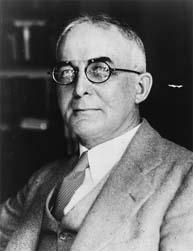The Supreme Court decision in United States v. Macintosh, 283 U.S. 605 (1931), upheld a federal district court’s denial of U.S. citizenship to Canadian-born Douglas Clyde Macintosh.
Macintosh expressed reservations about taking up arms for war in citizenship application
Macintosh, who had served as a chaplain for the Canadian army in World War I, was chaplain of the Yale Graduate School and Dwight Professor of Theology at the time of his petition for citizenship.
In his naturalization application, Macintosh had expressed reservations about his future countrymen’s duty to defend the United States. He had qualified his acceptance of shouldering this duty by indicating that allegiance to God came before allegiance to a country.
Macintosh was not a pacifist per se; he simply wished to reserve to himself the right to make his own judgment, guided by his religious conscience, concerning the necessity of taking up arms. In effect, Macintosh was looking to the First Amendment’s freedom of religion guarantee to override the necessity to take up arms in defense of his country, should he see fit.
Supreme Court upholds denial of citizenship, noting it was a privilege
In his decision for the Court, Justice George Sutherland argued that naturalization was “a privilege, to be given, qualified or withheld as Congress may determine, and which the alien may claim as of right only upon compliance with the terms which Congress imposes.”
Sutherland thought the case was governed by the decision in United States v. Schwimmer (1929), in which the Court denied naturalization to a pacifist.
Sutherland was not sympathetic to the idea that individuals might put their personal views above those of the government: “When he [Macintosh] speaks of putting his allegiance to the will of God above his allegiance to the government, it is evident . . . that he means to make his own interpretation of the will of God the decisive test which shall conclude the government and stay its hand.”
Sutherland observed that “we are a Nation with a duty to survive; a Nation whose Constitution contemplates war as well as peace; whose government must go forward upon the assumption, and safety can proceed upon no other, that unqualified allegiance to the Nation and submission and obedience to the laws of the land, as well those made for war as those made for peace, are not inconsistent with the will of God.” Since Macintosh could not give such allegiance, the district court’s denial of citizenship was correct.
Four justices dissent, pointing to First Amendment protections for conscientious objectors
Chief Justice Charles Evans Hughes wrote a dissent, joined by Justices Oliver Wendell Holmes Jr., Louis D. Brandeis, and Harlan Fiske Stone. Hughes did not believe that Congress had intended its general words about upholding the Constitution to preclude conscientious objectors from being naturalized. Hughes pointed to the long history of excusing conscientious objectors from military service.
John Vile is a professor of political science and dean of the Honors College at Middle Tennessee State University. He is co-editor of the Encyclopedia of the First Amendment. This article was originally published in 2009.

